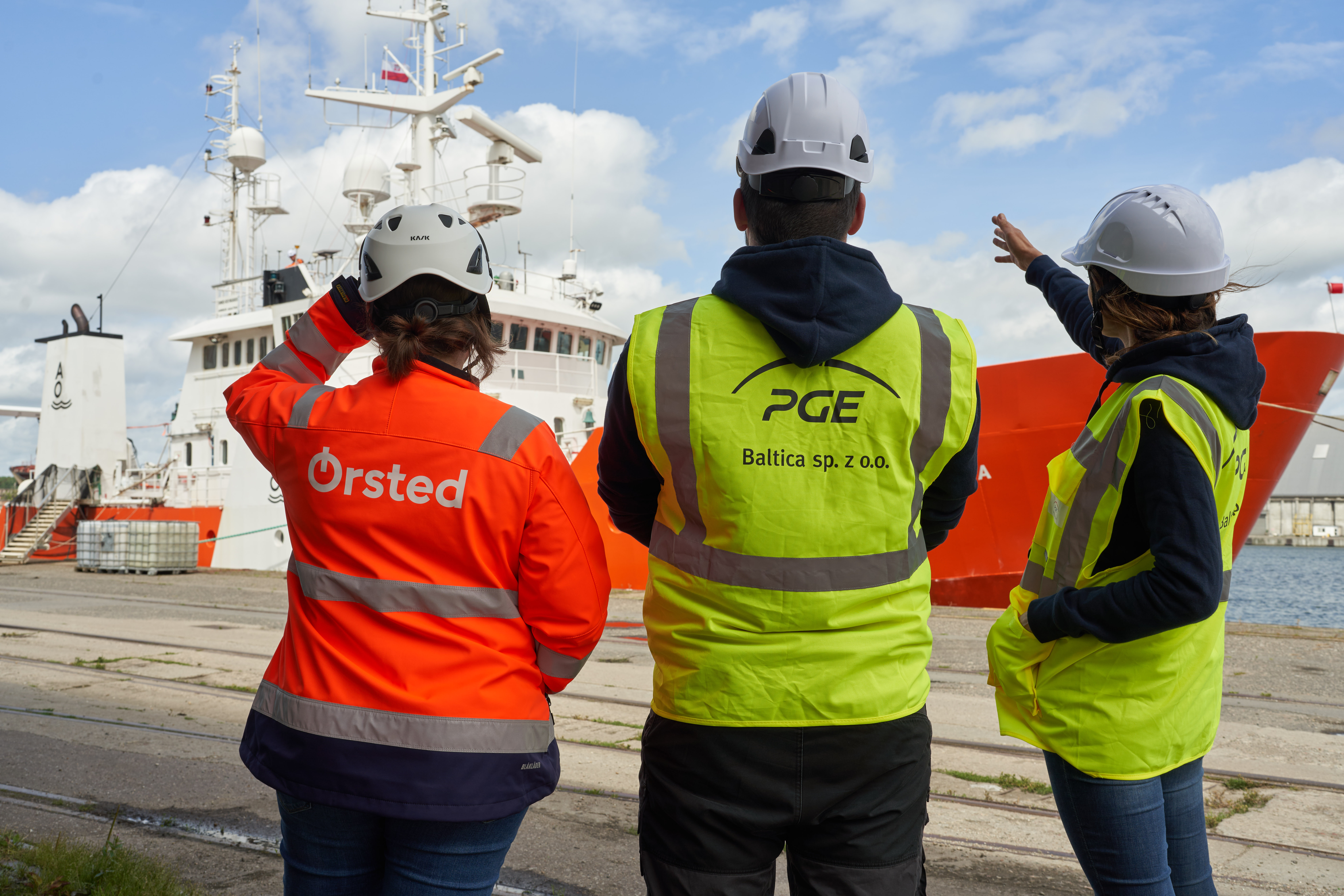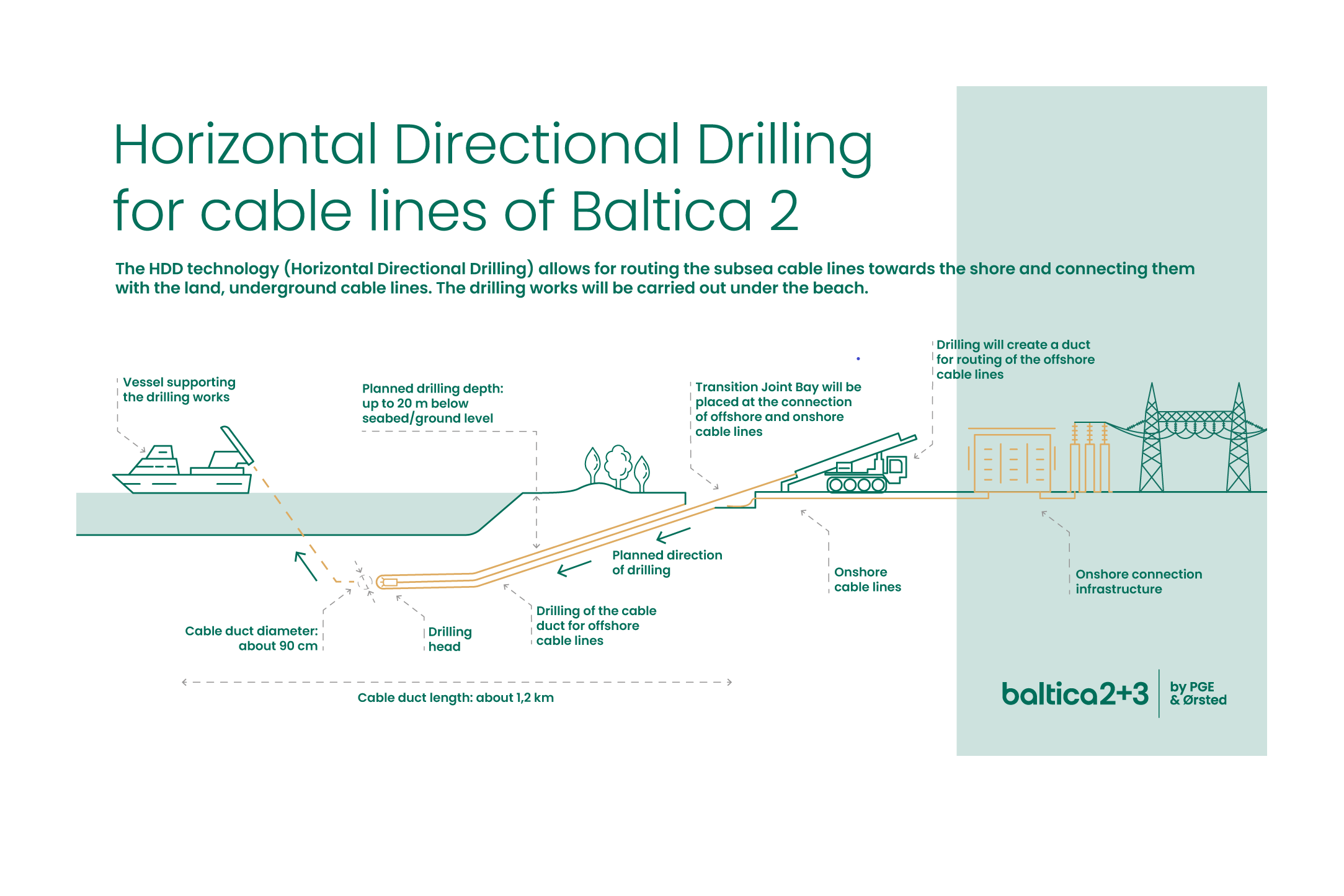Press releases
The company responsible for the implementation of the PGE Group's Offshore Programme is looking for a general contractor to prepare a detailed design and build an operations and maintenance base (O&M base) to provide services to its offshore wind farms. The new port infrastructure will bring a new life to the left-bank part of Ustka. The selection of a construction company means an opportunity to involve other domestic entities in the implementation of the project.
PGE and Ørsted, which are preparing to build the Baltica 2 offshore wind farm, have started bird monitoring and are preparing for porpoise monitoring. The research conducted will allow data to be collected on the occurrence of birds and porpoises in the area of the offshore wind farm and in its vicinity. The task is being carried out by Polish companies hired by the investors.
PGE Baltica, a PGE Group company, has signed a framework agreement with “PROJMORS” Biuro Projektów Budownictwa Morskiego sp. z o.o. for technical consulting related to the execution of an investment project for offshore wind power in port areas.
PGE Baltica, a PGE Group company, has chosen geotechnical and construction designer for the stage of seabed survey for the Baltica 1 project in the future offshore wind farm area and the export cable route. The contract was signed with Gavin and Doherty Geosolutions of the Venterra Group from Ireland.
PGE Group and Ørsted have selected a supplier to transport to the area of the future farm and install offshore substations for the Baltica 2 project, one of the two stages of the Baltica Offshore Wind Farm.
PGE Baltica, a PGE Group company, has signed an agreement with a Consortium of companies: Geofizyka Toruń, Przedsiębiorstwo Geologiczne GEOPROJEKT Szczecin and "PROJMORS" Biuro Projektów Budownictwa Morskiego to carry out a geological survey, including geotechnical and geophysical surveys and documentation of results for landfall horizontal directional drilling needed for the Baltica 1 Offshore Wind Farm.
The contract relates the execution of steerable drilling under the beach necessary for routing 275 kV cable lines and the construction of so-called "connection couplers," i.e. posts connecting offshore cable lines with onshore cable lines. The works will be carried out by a consortium of Polish companies - ROMGOS Gwiazdowscy and ZRB Janicki.
PGE Group and Ørsted have contracted vessels to install the second part of the wind turbines for the Baltica 2 project, one of two phases of the Baltica Offshore Wind Farm.
The Pomeranian Voivode issued permits for the construction of the offshore part pf the Baltica 2 wind farm project which is developed by PGE and Ørsted. They refer to the construction of wind turbines as well as the offshore substations. These are the last permits necessary before starting construction.







